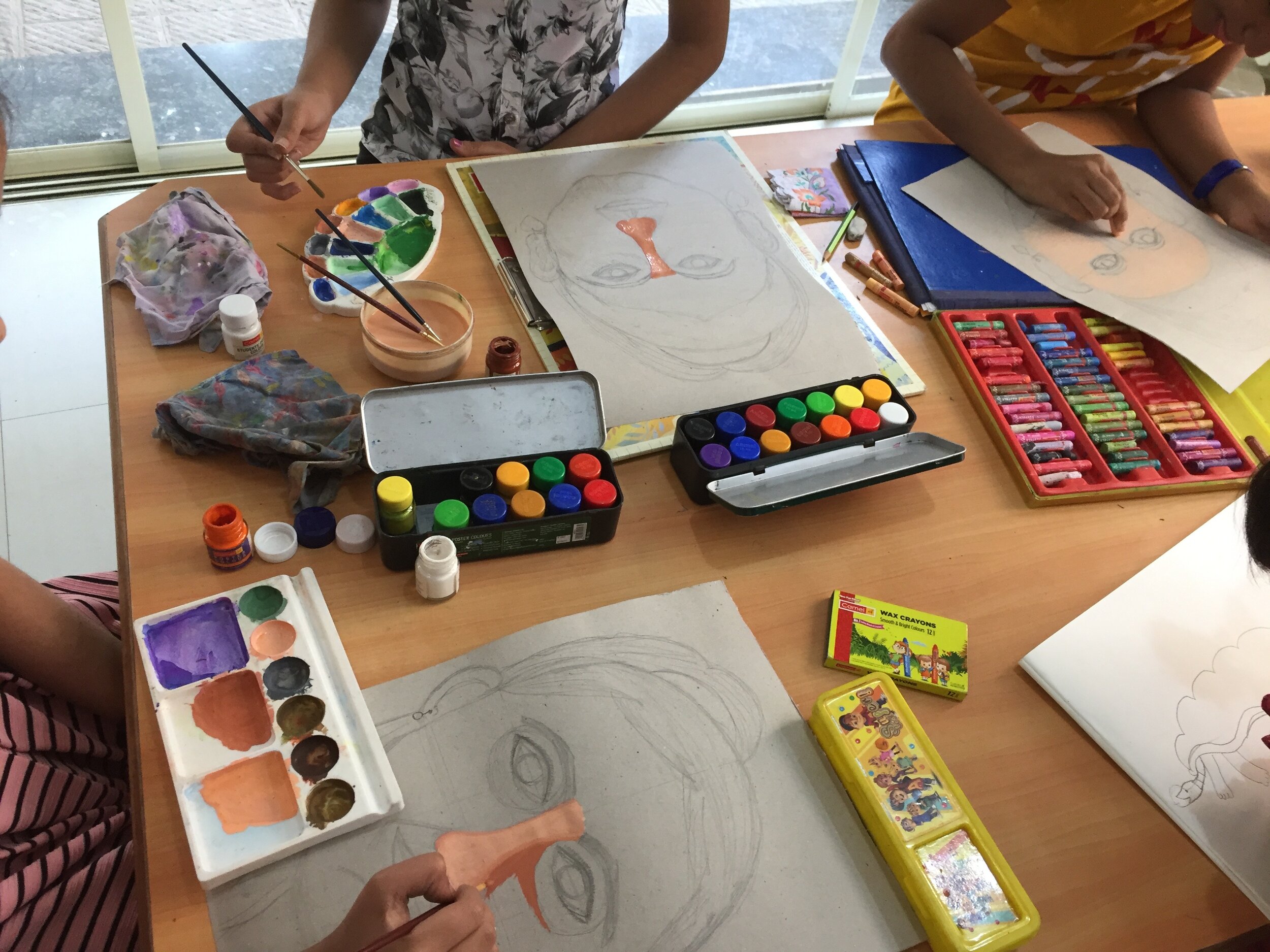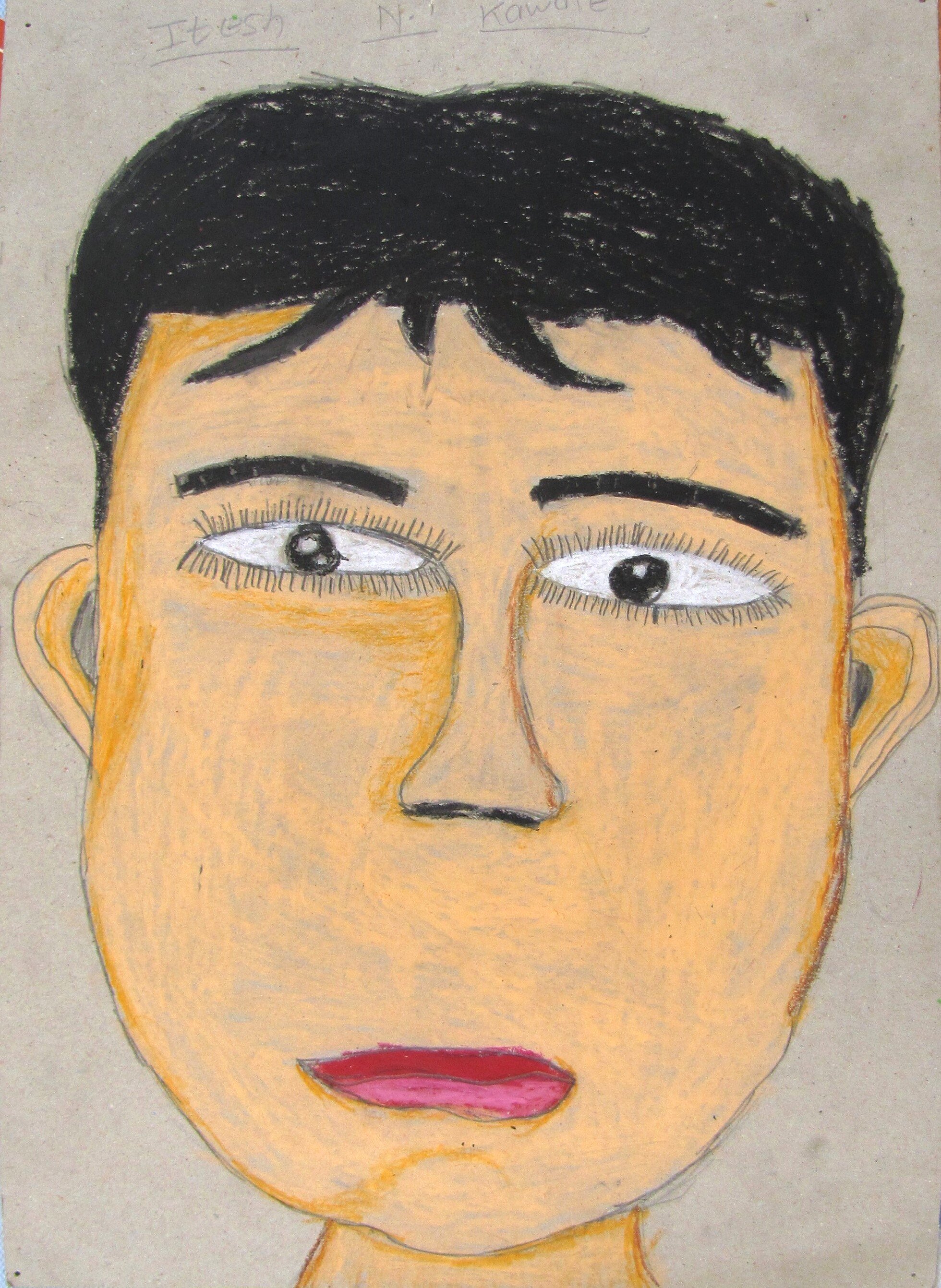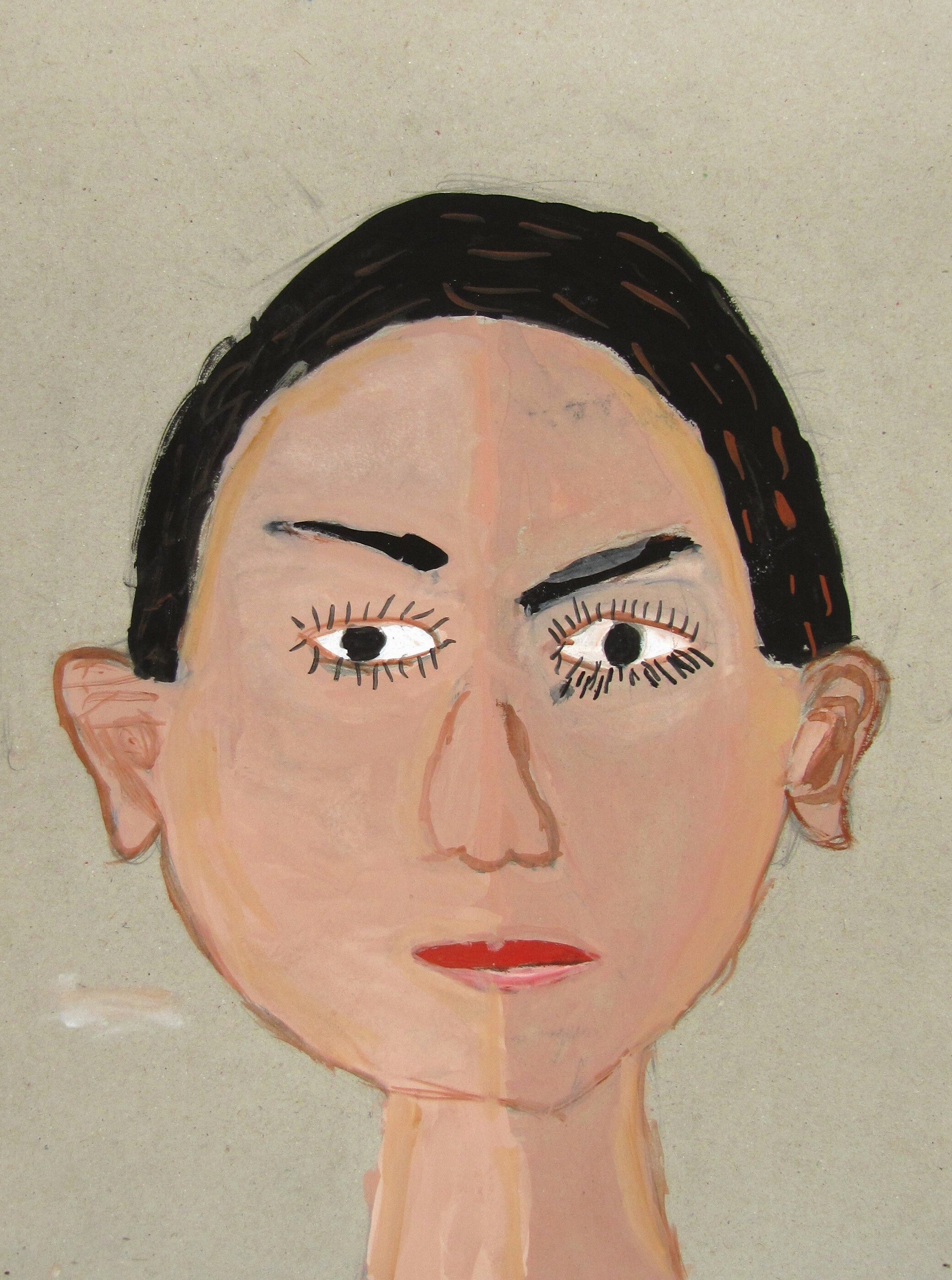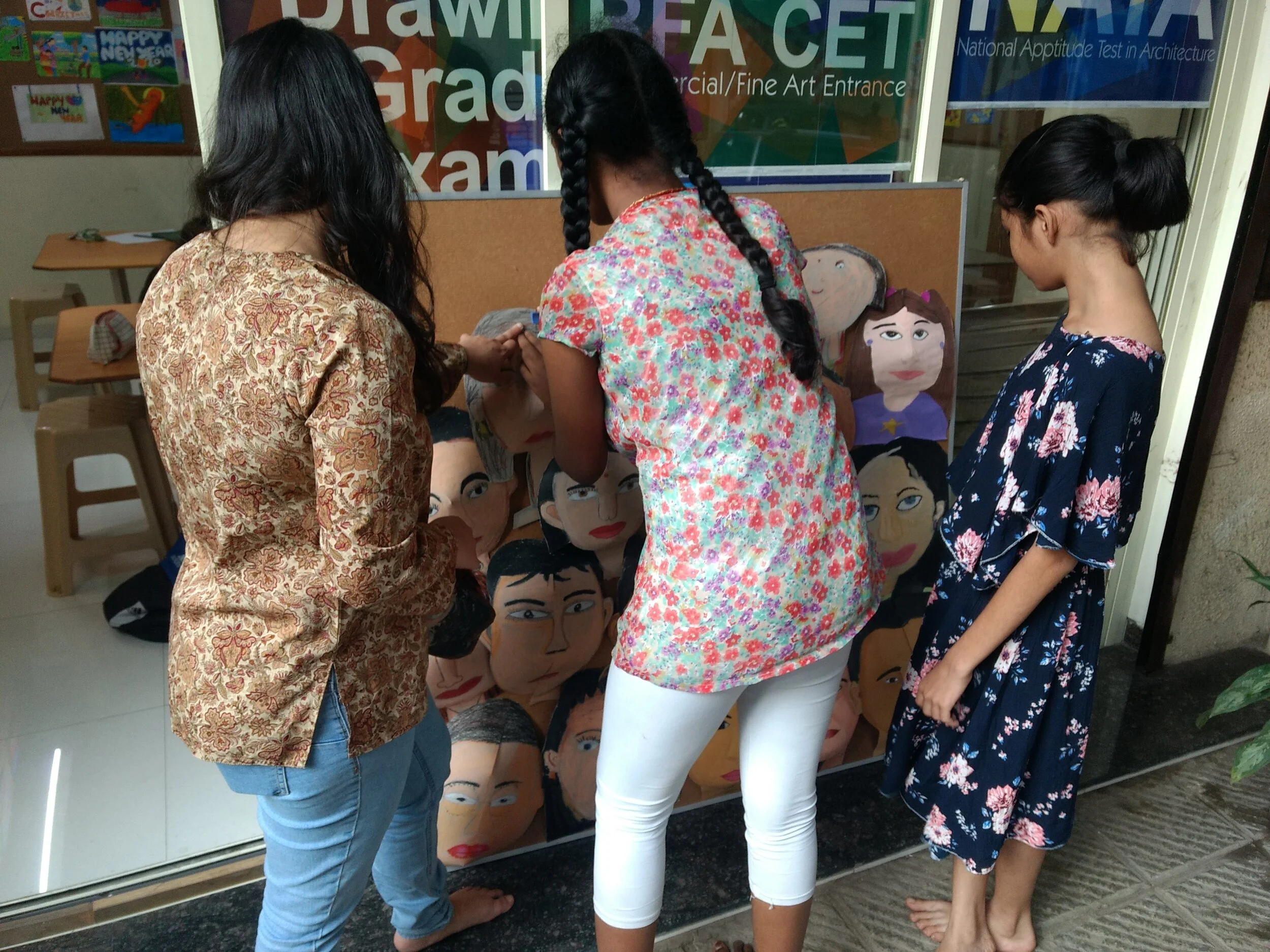Portraits
Teaching Team Members: Tanvi Kulkarni
Age or Grade Level: 5th - 8th grade
Duration: 1.5 hours for 3 days
Visual Arts Content / Standards
6.1.2.5.1- Demonstrate the characteristics of the tools, materials, and techniques of various two-and-three dimensional media for intentional effects in original artworks.
Overview of Project
In this project, students create a three-dimensional structure of a human face, explore facial features and proportions, and address abstractions using cardboard and colored paper in the creation of a portrait of family or friends.
“Big Ideas”/ Essential Question(s)
What is a portrait or/ what does a portrait tell?
What is the relationship between abstraction and realism?
What are art and craft? Or how are art and craft related?
Student Outcome Objectives
Students will:
Explore proportions in the facial structure by measuring the distance between the eyes, nose, ears and other facial structures.
Move portraiture from 2D to 3D form
Craft a mask considering content, feature proportions, color through a handbuilt and painted mediam
Prior Knowledge
Students will need basic drawing and cutting skills.
Lesson Preparation Timeline
Saturday, Dec 28, 2020 - Cut boards for masks into 4 pieces ( 24 pieces total )
Examples of Artwork
contemporary-portrait.com/gallery.html
artnet.com/artists/chuck-close/self-portrait-a-fQPIdxPeuXbDU73uPua7Mg2
Additional Resources
The Salvidor Dali Salad by Red Grooms https://collections.artsmia.org/art/7629/dali-salad-ii-red-grooms
https://img.fireden.net/ic/image/1517/12/1517120281109.jpg
Raja Ravi Varma https://www.mid-day.com/articles/gita-uplekar-the-girl-in-glow-of-hope-painting-dies-at-the-age-of-102/19860166
Assessment
How did abstraction help to understand the human facial structure?
How did three-dimensional paper form help to understand light and shadow?
Materials
Cereal box board - 12 X 18 inches
Acrylic/ oil pastel colors
Brushes
Glue
Drawing paper
Drawing utensils
Erasers
Scissors
Matt knives and self-healing matte or cardboard to cut on
Learning Activities and Timing
Day 1 ( total: one and a half hour )
10 min: Greet students, and introductions: Discussion about portraiture which will include questions like, have they done portraits before? What do they notice in portraits? Talk about proportions, Show the references of portraits:https://boards.fireden.net/ic/thread/3291354, https://collections.artsmia.org/art/7629/dali-salad-ii-red-grooms. See if there are any immediate questions.
15 min: Introduce the project to the students: Demo of drawing portrait. Help them with proportions
1 hour: Work Time: Drawing portrait on the board.
10 min: Clean up
Day 2 ( total: 2 hours)
10 min: Revise what we did in the last session. Share portraits drawings in the classroom.
15 min: Introduction the portrait painting: Demo of portrait painting. Discus about the light source. https://www.mid-day.com/articles/gita-uplekar-the-girl-in-glow-of-hope-painting-dies-at-the-age-of-102/19860166
1 hour: painting
5 min: Clean up
Day 3 ( total: 1 hour )
15 min: Revise the process and share of painted portraits in the classroom.
10 min: Demo of cutting painted portrait to make it three-dimensional.
15 min: Cut portraits and glue them by overlapping the cut section.
15 min: Arrange all the portraits together and install them on the wall/ surface.
Reflection: How did you measure facial proportions? What is a craft and what is art for you in this process? What did you enjoy the most and why?
5 min: Clean up - Install all the portraits on the wall.
•Adapted from the http://www.cesnorthwest.org/essential_questions.htm Northwest Coalition of Essential Schools















































